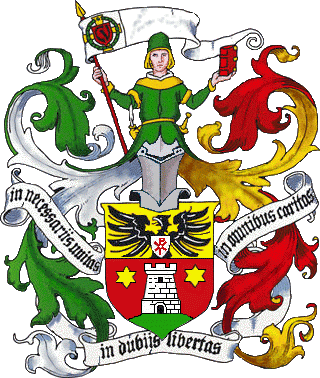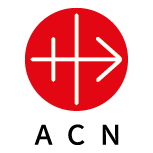
The World Council of Churches (WCC) is a worldwide Christian inter-church organization founded in 1948 to work for the cause of ecumenism. Its full members today include the Assyrian Church of the East, the Oriental Orthodox Churches, most jurisdictions of the Eastern Orthodox Church, the Union of Utrecht, the Lutheran World Federation, the Anglican Communion, the Mennonite churches, the World Methodist Council, the Baptist World Alliance, the World Communion of Reformed Churches, the Pentecostal churches, the Moravian Church and the Malankara Mar Thoma Syrian Church. Notably, the Catholic Church is not a full member, although it sends delegates to meetings who have observer status.
The relations between the Catholic Church and the state have been constantly evolving with various forms of government, some of them controversial in retrospect. In its history, the Church has had to deal with various concepts and systems of governance, from the Roman Empire to the medieval divine right of kings, from nineteenth- and twentieth-century concepts of democracy and pluralism to the appearance of left- and right-wing dictatorial regimes. The Second Vatican Council's decree Dignitatis humanae stated that religious freedom is a civil right that should be recognized in constitutional law.
Forward in Faith (FiF) is an organisation operating in the Church of England and the Scottish Episcopal Church. It represents a traditionalist strand of Anglo-Catholicism and is characterised by its opposition to the ordination of women to the priesthood and episcopate. It also takes a traditionalist line on other matters of doctrine. Credo Cymru is its counterpart in Wales. Forward in Faith North America (FIFNA) operates in the U.S.
The Confraternity of Christian Doctrine (CCD) is an association established in Rome in 1562 for the purpose of providing religious education. In modern usage, it refers to the Confraternity of Christian Doctrine, Inc., which owns the copyright on the New American Bible Revised Edition, and is a term colloquially used for the catechesis or religious education program of the Catholic Church, normally designed for children. In some Catholic parishes, CCD is called PSR, meaning Parish School of Religion, or SRE, meaning Special Religious Education.

Christianity is the largest religion in Germany. It was introduced to the area of modern Germany by 300 AD, while parts of that area belonged to the Roman Empire, and later, when Franks and other Germanic tribes converted to Christianity from the fifth century onwards. The area became fully Christianized by the time of Charlemagne in the eighth and ninth century. After the Reformation started by Martin Luther in the early 16th century, many people left the Catholic Church and became Protestant, mainly Lutheran and Calvinist. In the 17th and 18th centuries, German cities also became hubs of heretical and sometimes anti-religious freethinking, challenging the influence of religion and contributing to the spread of secular thinking about morality across Germany and Europe.

The Catholic Church and politics concerns the interplay of Catholicism with religious, and later secular, politics. The Catholic Church's views and teachings have evolved over its history and have at times been significant political influences within nations.

The Union of Catholic German Student Fraternities is a German umbrella organization of Catholic male student fraternities (Studentenverbindung).
The Conference of European Churches (CEC) was founded in 1959 to promote reconciliation, dialogue and friendship between the churches of Europe at a time of growing Cold War political tensions and divisions.

Aid to the Church in Need is an international Catholic pastoral aid organization, which yearly offers financial support to more than 5,000 projects worldwide.

The International Union of the Guides and Scouts of Europe - Federation of Scouts of Europe is a traditional faith-based Scouting organization with 20 member associations in 17 European countries and also in North America, serving roughly 65,000 members. The organization, headquartered in France, was founded in 1956 by a group of German and French Roman Catholic Scoutmasters as a faith-based Scouting movement, in order to reconcile the European peoples in the aftermath of the Second World War.

The Catholic Church in India is part of the worldwide Catholic Church under the leadership of the Pope. There are over 20 million Catholics in India, representing around 1.55% of the total population, and the Catholic Church is the single largest Christian church in India. There are 10,701 parishes that make up 174 dioceses and eparchies, which are organised into 29 ecclesiastical provinces. Of these, 132 dioceses are of the Latin Church, 31 of the Syro-Malabar Catholic Church and 11 of the Syro-Malankara Catholic Church. Despite the very small population that Indian Catholics make up percentage wise, India still has the second-largest Christian population in Asia after the Catholic Church in the Philippines.
The International Council of Christians and Jews (ICCJ) is an umbrella organization of 38 national groups in 32 countries worldwide engaged in the Christian-Jewish dialogue.
SIGNIS (official name: World Catholic Association for Communication) is a Roman Catholic lay ecclesial movement for professionals in the communication media, including press, radio, television, cinema, video, media education, internet, and new technology. It is a non-profit organization with representation from over 100 countries. It was formed in November 2001 by the merger of International Catholic Organization for Cinema and Audiovisual (OCIC) and International Catholic Association for Radio and Television (Unda). At its World Congress in Quebec in 2017, SIGNIS welcomed also former member organisations of the International Catholic Union of the Press (UCIP).
In Germany and Switzerland, a Landeskirche is the church of a region. The term usually refers to Protestant churches, but—in case of Switzerland—also Roman Catholic dioceses. They originated as the national churches of the independent states, States of Germany (Länder) or Cantons of Switzerland , that later unified to form modern Germany or modern Switzerland, respectively.

Formal diplomatic relations between the Holy See and the current Federal Republic of Germany date to the 1951 and the end of the Allied occupation. Historically the Vatican has carried out foreign relations through nuncios, beginning with the Apostolic Nuncio to Cologne and the Apostolic Nuncio to Austria. Following the dissolution of the Holy Roman Empire and the Congress of Vienna, an Apostolic Nuncio to Bavaria replaced that of Cologne and that mission remained in Munich through several governments. From 1920 the Bavarian mission existed alongside the Apostolic Nuncio to Germany in Berlin, with which it was merged in 1934.

Christianity has a long history in Kyrgyzstan, with the earliest archaeological remains of churches belonging to the Church of the East in modern-day Suyab dating back to the 7th century. By the 9th century an archdiocese of the Church of the East cared for the Christians of Kyrgyzstan and adjacent areas in eastern Turkestan. Although primarily Turkic there was also an Armenian community in what today is Kyrgyzstan by the 14th century. By the 15th century, however, there were no longer ecclesiastical structures of any church caring for what is today Kyrgyzstan and Islam gained the ascendancy amongst the Kyrgyz people.
The All India Catholic Union (AICU) represents almost 16 million Catholics in India: followers of the Latin Church, the Syro-Malabar Catholics and the Syro-Malankara Catholics. It has 120 diocese and district units. The AICU was established in 1930.

In Protestant usage, a consistory designates certain ruling bodies in various churches. The meaning and the scope of functions varies strongly, also along the separating lines of the Protestant denominations and church bodies.

The Catholic Bishops' Conference of Japan, also abbreviated as the CBCJ, is the Catholic episcopal conference of Japan, representing predominantly the members of the Latin Japanese Catholic Church. It was founded as the Nippon Tenshu Kokyo Kyodan. After the implementation and execution of the Religious Corporations Act, the body was renamed the CBCJ, becoming a religious corporation as classified under Japanese law.











